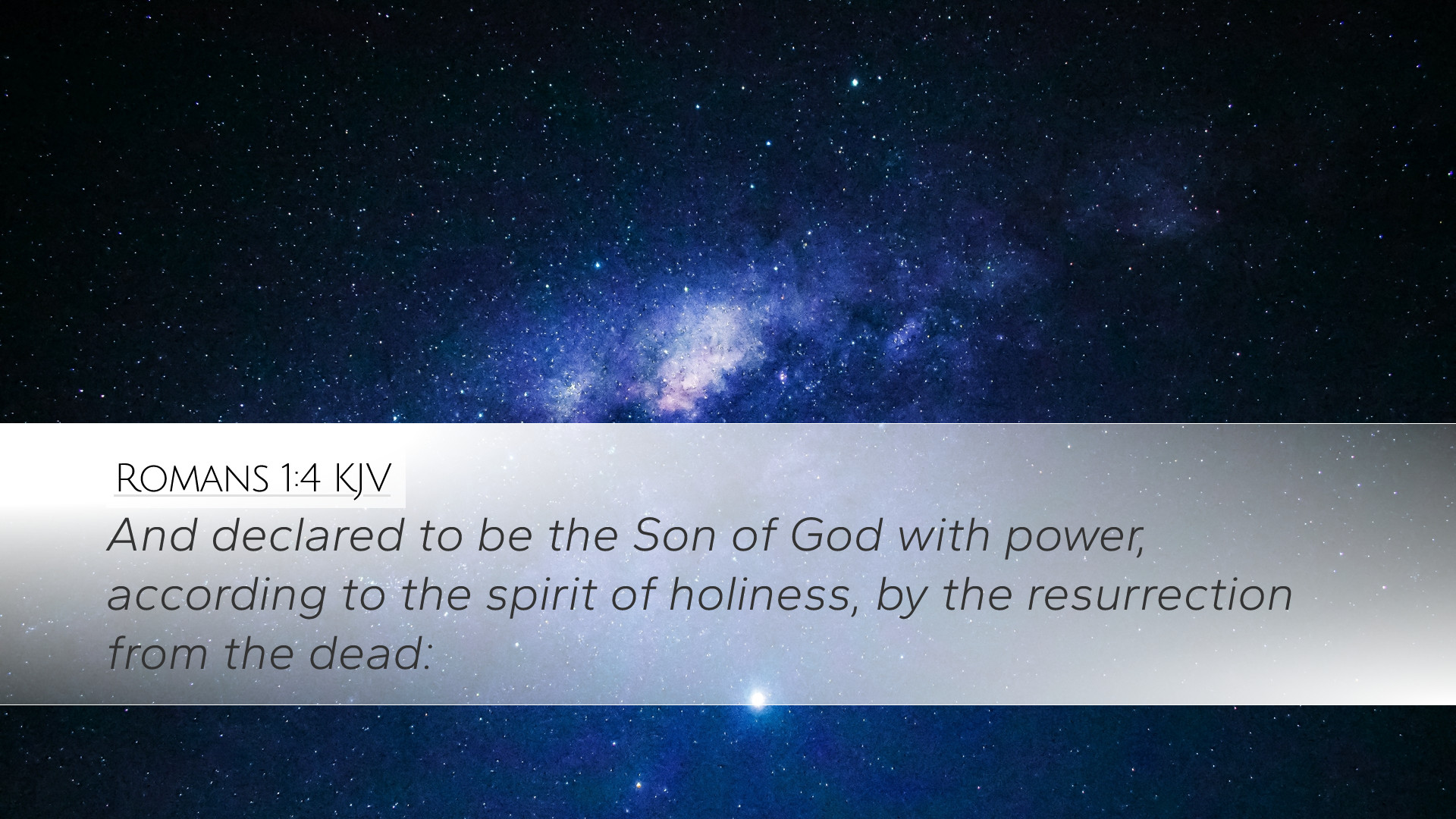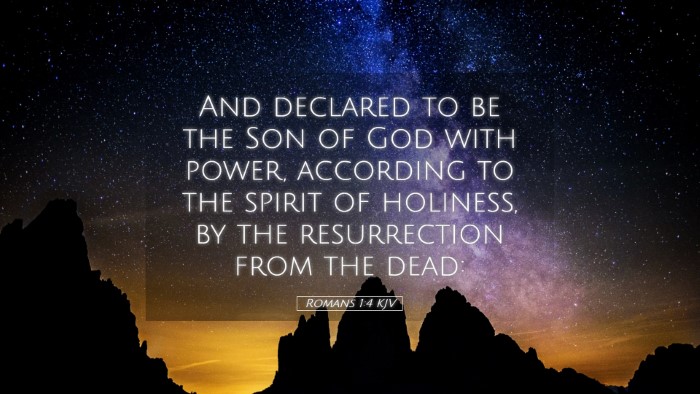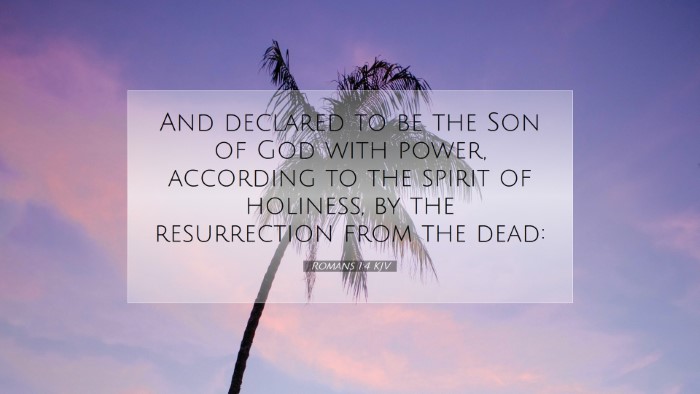Old Testament
Genesis Exodus Leviticus Numbers Deuteronomy Joshua Judges Ruth 1 Samuel 2 Samuel 1 Kings 2 Kings 1 Chronicles 2 Chronicles Ezra Nehemiah Esther Job Psalms Proverbs Ecclesiastes Song of Solomon Isaiah Jeremiah Lamentations Ezekiel Daniel Hosea Joel Amos Obadiah Jonah Micah Nahum Habakkuk Zephaniah Haggai Zechariah MalachiVerse
Romans 1:1 Romans 1:2 Romans 1:3 Romans 1:4 Romans 1:5 Romans 1:6 Romans 1:7 Romans 1:8 Romans 1:9 Romans 1:10 Romans 1:11 Romans 1:12 Romans 1:13 Romans 1:14 Romans 1:15 Romans 1:16 Romans 1:17 Romans 1:18 Romans 1:19 Romans 1:20 Romans 1:21 Romans 1:22 Romans 1:23 Romans 1:24 Romans 1:25 Romans 1:26 Romans 1:27 Romans 1:28 Romans 1:29 Romans 1:30 Romans 1:31 Romans 1:32

